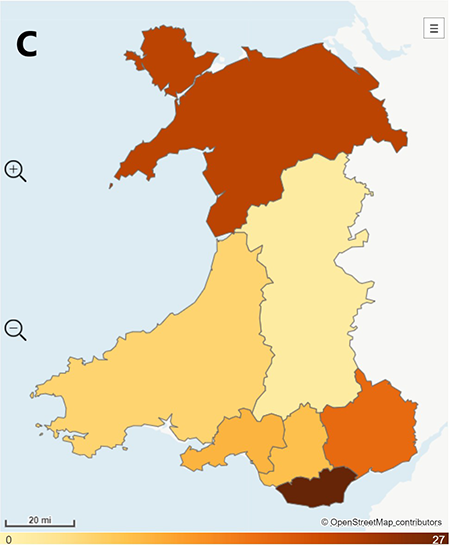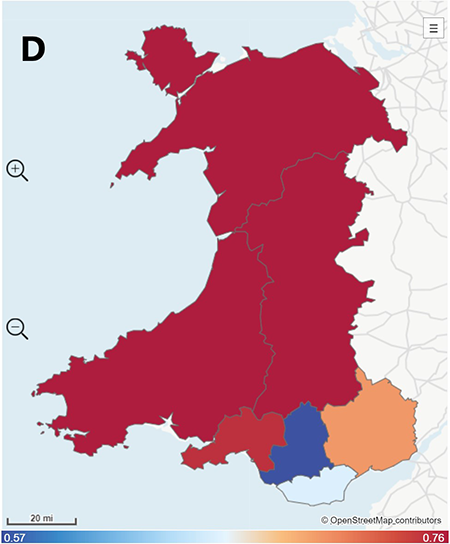This NIHR call invites proposals for dementia research to address important health and social care questions.
Background
Dementia is a growing challenge that has become one of the most important health and social care issues facing the world. In the UK it is estimated that dementia affects around 850,000 people. Commitments under the Government’s Challenge on Dementia and the G8 Dementia Summit have highlighted the need to boost dementia research, led by the research community. Since the Dementia Themed call in 2011, the NIHR has funded an extensive portfolio of dementia research and the Clinical Research Network has supported the delivery of a large number of projects.
Specific requirements for this call
We need to continue building the evidence base, to improve the lives of people affected by dementia. We need more research focused on meeting the needs of underserved populations. Applications are welcomed which include populations with a high disease burden and which have been historically under-served by NIHR research activity (see appendix below), and which address equality, diversity and inclusion.
To increase capacity and capability in this important area, we would particularly welcome applications that will support network and partnership activities specifically to facilitate and enable those individuals and organisations who have historically been less research active. Applications should include co-applicant representation within the core team from at least one geographical area demonstrating a mismatch between care and research activity.
Applications should be co-produced with service commissioners, providers and service users wherever appropriate to better ensure findings are of utility in policy and practice. Applicants may wish to consult the NIHR guidance on co-producing research.
Specific areas of interest for research
Research could involve any aspect of prevention, diagnosis, treatment, support or care, and related health and social care services. Applications which involve investigators spanning a range of specialties are encouraged and partnership with national charities welcomed.
Some examples of potential areas of interest are given below, but this is not exhaustive list. Other research within the remit of the participating NIHR funding programmes and relevant to this call will also be considered.
- Meeting the needs of people affected by dementia in under-served groups
- Research gaps identified in the Dementia wellbeing and COVID-19: review and expert consensus on current research and knowledge gaps
- Prevention
- Research needs identified in the Dementia research roadmap for prevention, diagnosis, intervention and care by 2025
- Research recommendations identified by NICE Dementia: assessment, management and support for people living with dementia and their carers (June 2018)
It is important that dementia as an area of research continues to grow in terms of capacity, and ability to deliver evidence to inform policy, services, and practitioners. We therefore also welcome proposals which build on knowledge from the NIHR Dementia Themed Call and aligned initiatives.
How to apply
Research proposals must be within the remit of at least one participating NIHR Programme. The Programmes involved in this call are:
- Efficacy and Mechanism Evaluation (EME)
- Health and Social Care Delivery Research (HSDR)
- Health Technology Assessment (HTA)
- Invention for Innovation (i4i)
- NIHR Fellowships Programme
- Policy Research Programme (PRP)
- Programme Grants for Applied Research (PGfAR)
- Programme Development Grants (PDG)
- Public Health Research (PHR)
- Research for Patient Benefit (RfPB)
- Research for Social Care (RfSC)
Please note that:
- Proposals for both primary and secondary research are welcome. Both retrospective and prospective research studies are in scope for this call.
- Applicants should justify the importance of their proposed research and its potential impact on care.
- Applicants should clearly state how their proposed research addresses an explicit evidence gap and how the research adds value to the existing NIHR research portfolio.
Contact Information
- For support developing applications, applicants are encouraged to contact their local NIHR Research Design Service (RDS) or equivalent in the first instance.
- For remit enquiries,applicantsshouldcontacttheparticipatingNIHR Programme they feel is the most appropriate for their research idea.
- Efficacy and Mechanism Evaluation (EME) eme@nihr.ac.uk
- Health and Social Care Delivery Research (HSDR) hsdrinfo@nihr.ac.uk
- Health Technology Assessment (HTA) htafunding@nihr.ac.uk
- Invention for Innovation (i4i) i4i@nihr.ac.uk
- NIHR Fellowships academy-awards@nihr.ac.uk
- Policy Research Programme prp@nihr.ac.uk
- Programme Grants for Applied Research (PGfAR) & Programme Development Grants programme.grants@nihr.ac.uk
- Public Health Research (PHR) phr@nihr.ac.uk
- Research for Patient Benefit (RfPB) rfpb@nihr.ac.uk
- Research for Social Care (RfSC) rfsc@nihr.ac.uk
Appendix – Research following need
Please note that the enclosed maps/data tables are provided to illustrate the potential mismatch between research and burden of disease. Given that currently equivalent data from across the UK is not included within a single tool, the data has been derived from different sources from across the UK based on areas of direct responsibility. However, the NIHR is keen to ensure that research is conducted in the areas where health needs are greatest across the UK and therefore, applicants from across the UK will be expected to justify their choice of recruitment sites.
England
An analysis of where NIHR supported studies related to dementia have recruited patients and the prevalence of dementia across England indicate that dementia prevalence is highest in the Northwest (Southport and Formby; Fylde and Wyre; Eastern Cheshire), in the West (Shropshire) and South coast of England (East Sussex; South Eastern Hampshire; Isle of Wight). The CCGs with the most research activity in dementia though are in North Central London, Newcastle Gateshead, Oxfordshire, and Cambridgeshire and Peterborough, where the prevalence levels are lower.
For more information about the breakdown of studies for regions in England then please email the team: crossprogramme@nihr.ac.uk
Wales


The maps above and table below illustrate where NIHR supported studies related to dementia have recruited patients (C) and the prevalence of dementia (D) across Wales. Dementia prevalence is lowest in the South of Wales (Cwm Taf and Cardiff and Vale) but recruitment to studies is highest in Cardiff and Vale, but much less for Cwm Taf. In the North of Wales (Betsi Cadwaladr) there is a better match with higher prevalence and more recruitment. The biggest mismatch is in the Powys Health Board with almost the highest prevalence across Wales but with very few studies having recruited in this area.
Map C: Specialty ‘Dementia and Neurodegeneration’ and Sub-specialty ‘Dementia’. The shading represents the number of studies that have recruited participants in each Health Board area since 2010/2011 (data accessed 19 March 2021). Recruitment at the three NHS Trusts in Wales is not included within the Local Health Board area map. (Open Data Platform Research Targeting tool, NIHR CRN; Data source: NIHR CRN Central Portfolio Management System (CPMS))
Map D: The percentage of people with dementia, as recorded on practice disease registers 2019 (Welsh Government).
| Local health board | Studies recruited (2010/11-present) | Percentage of patients (all ages) with dementia 2018/19 |
|---|---|---|
| Betsi Cadwaladr ULHB | 18 | 0.76% |
| Powys Teaching LHB | 2 | 0.75% |
| Hywel Dda ULHB | 5 | 0.74% |
| Abertawe Bro Morgannwg ULHB (Swansea Bay) | 8 | 0.73% |
| Cwm Taf ULHB | 7 | 0.57% |
| Aneurin Bevan ULHB | 14 | 0.69% |
| Cardiff & Vale ULHB | 27 | 0.65% |
Scotland
The table below shows the prevalence of dementia in Scotland, as well as the number of studies with various statuses (active, in follow-up etc.) during the period April 2019-March 2020 with the specialty ‘Neuroprogressive and Dementia’ in each Scottish Health Board (data accessed 8 February 2021; NHS Research Scotland).
Prevalence is lowest in Greater Glasgow Clyde where there are the largest number of studiest recruiting. There have been almost no studies recruiting in Dumfries & Galloway where the prevalence is amongst the highest in Scotland.
Studies during the period April 2019-March 2020 with the specialty ‘Neuroprogressive and Dementia’
| Health Board area | Dementia Rate % | Active | COVID-19 New recruit suspended | Follow-up suspended (COVID) | In follow-up | Suspended | Suspended (COVID) | Total |
|---|---|---|---|---|---|---|---|---|
| NHS Ayrshire & Arran | 0.72 | 0 | 1 | 0 | 3 | 2 | 5 | 11 |
| NHS Borders | 0.90 | 1 | 1 | 0 | 8 | 0 | 0 | 10 |
| NHS Dumfries & Galloway | 0.97 | 1 | 0 | 0 | 0 | 1 | 0 | 2 |
| NHS Fife | 0.82 | 2 | 4 | 0 | 3 | 0 | 0 | 9 |
| NHS Forth Valley | 0.76 | 8 | 3 | 0 | 4 | 1 | 0 | 16 |
| NHS Grampian | 0.73 | 8 | 5 | 0 | 8 | 1 | 0 | 22 |
| NHS Greater Glasgow & Clyde | 0.64 | 31 | 5 | 0 | 23 | 2 | 3 | 64 |
| NHS Highland | 0.92 | 5 | 0 | 0 | 9 | 1 | 2 | 17 |
| NHS Lanarkshire | 0.78 | 6 | 2 | 0 | 4 | 0 | 1 | 13 |
| NHS Lothian | 0.75 | 22 | 7 | 0 | 21 | 0 | 3 | 53 |
| NHS Tayside | 1.01 | 12 | 1 | 2 | 11 | 0 | 0 | 26 |
| Total | 0 | 96 | 29 | 2 | 94 | 8 | 14 | 243 |
Northern Ireland
Portfolio analysis identified 15 studies recruiting since 2010/11 in the disease area ‘Dementias and Neurodegenerative Diseases’ across Northern Ireland Health and Social Care Trusts (HSC Public Health Agency, Northern Ireland).
Prevalence of Dementia as a percentage of people with dementia recorded on practice disease registers, by Local Commissioning Group (HSC Public Health Agency, Northern Ireland)
| Local Commissioning Group | Dementia rate % |
|---|---|
| Belfast Area | 0.75 |
| South Eastern Area | 0.84 |
| Northern Area | 0.70 |
| Southern Area | 0.60 |
| Western Area | 0.86 |
| Northern Ireland | 0.74 |

